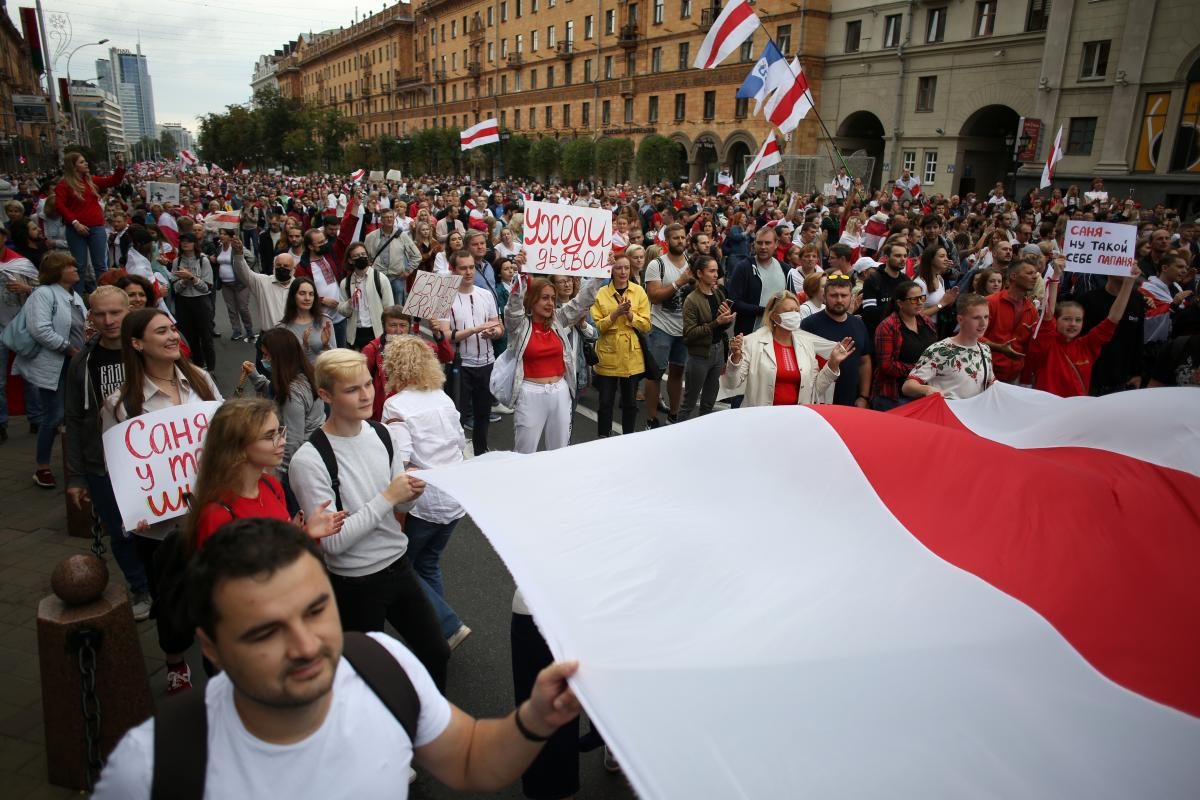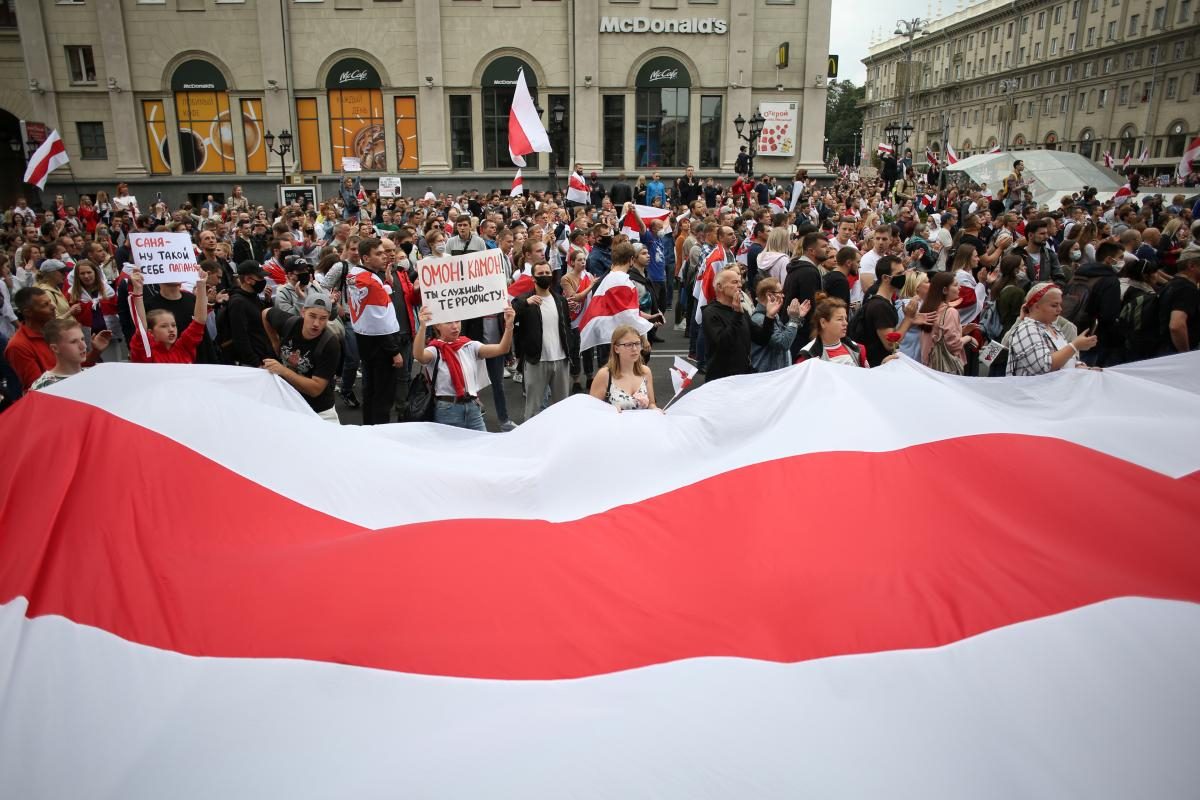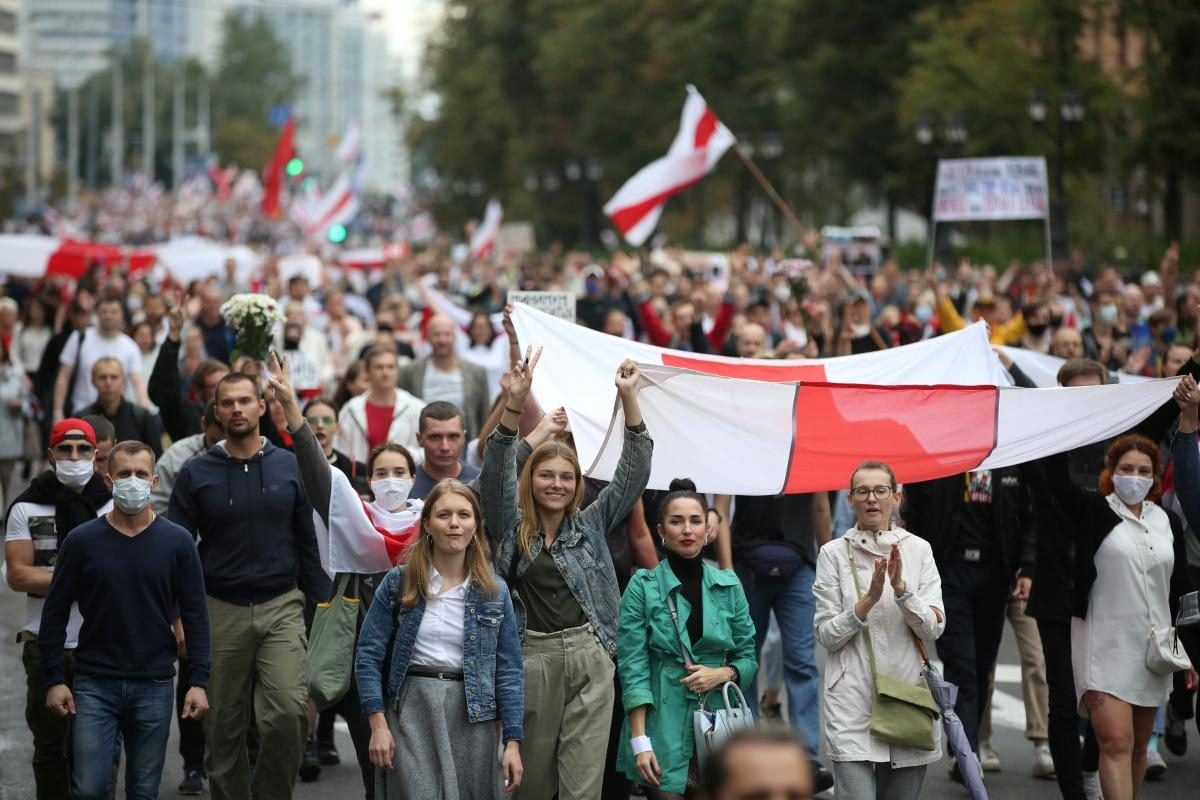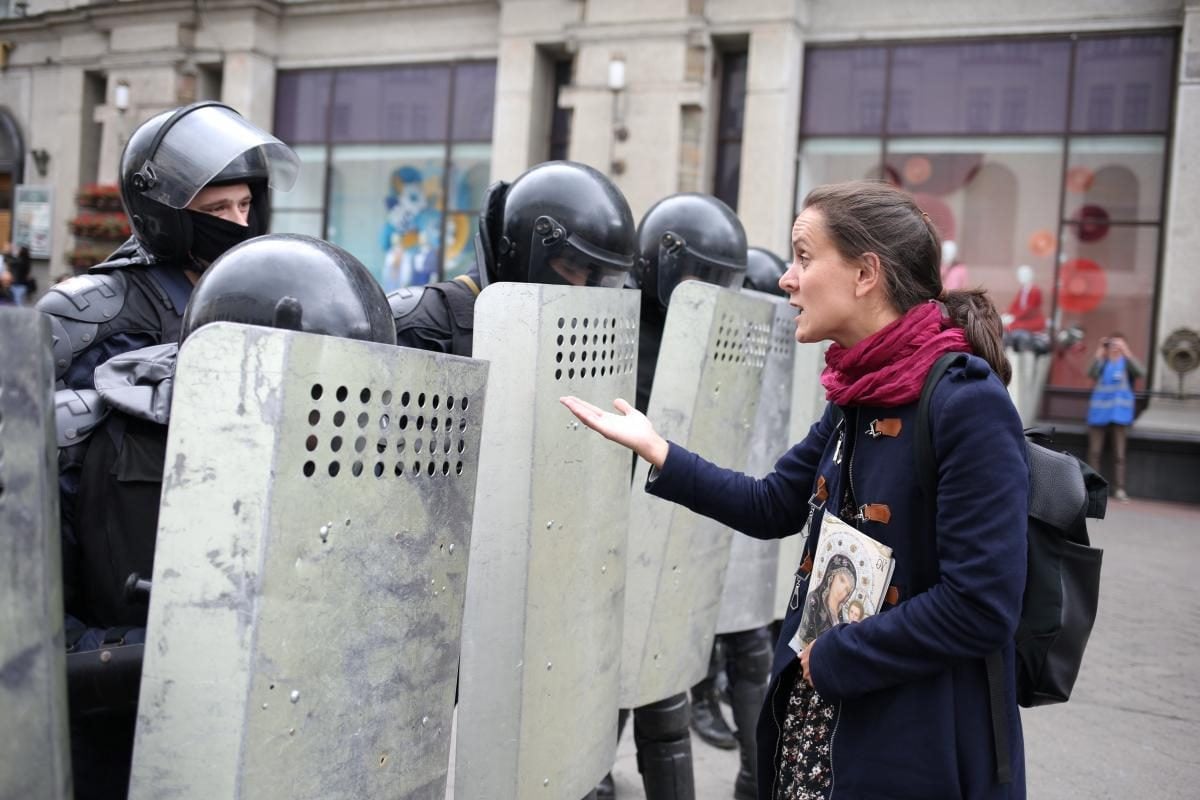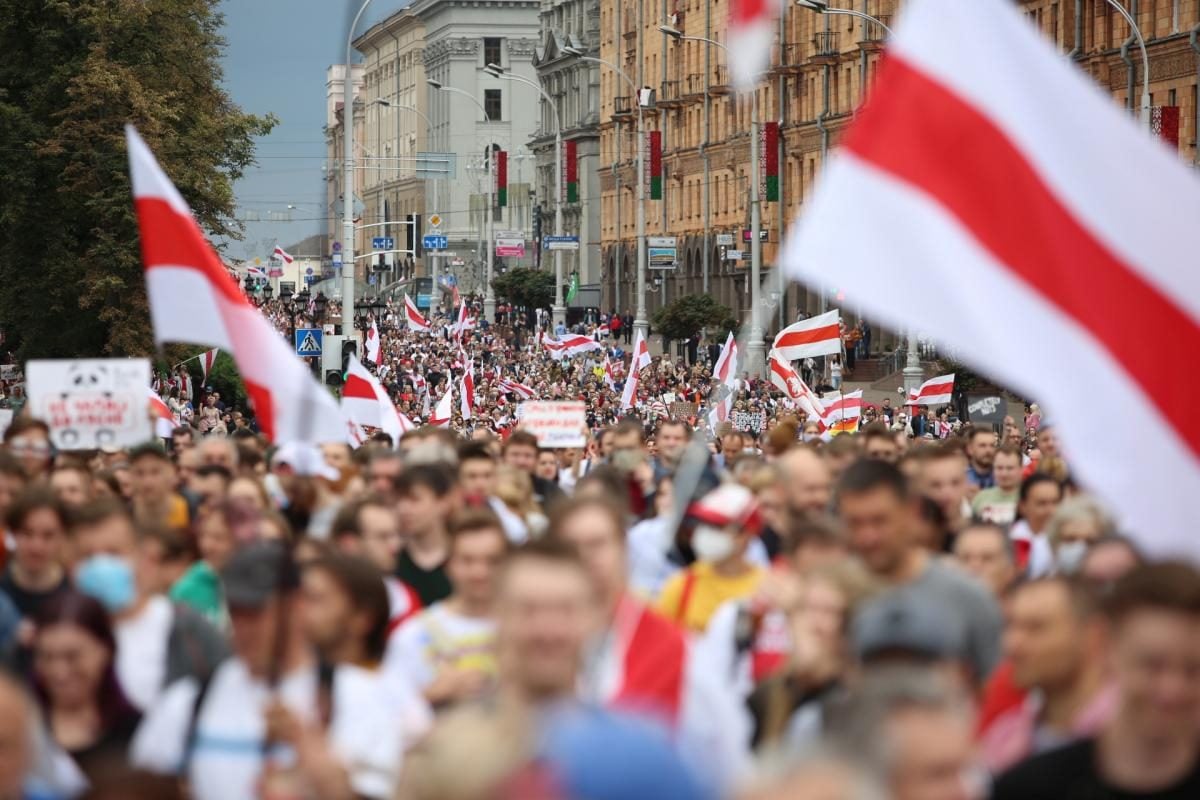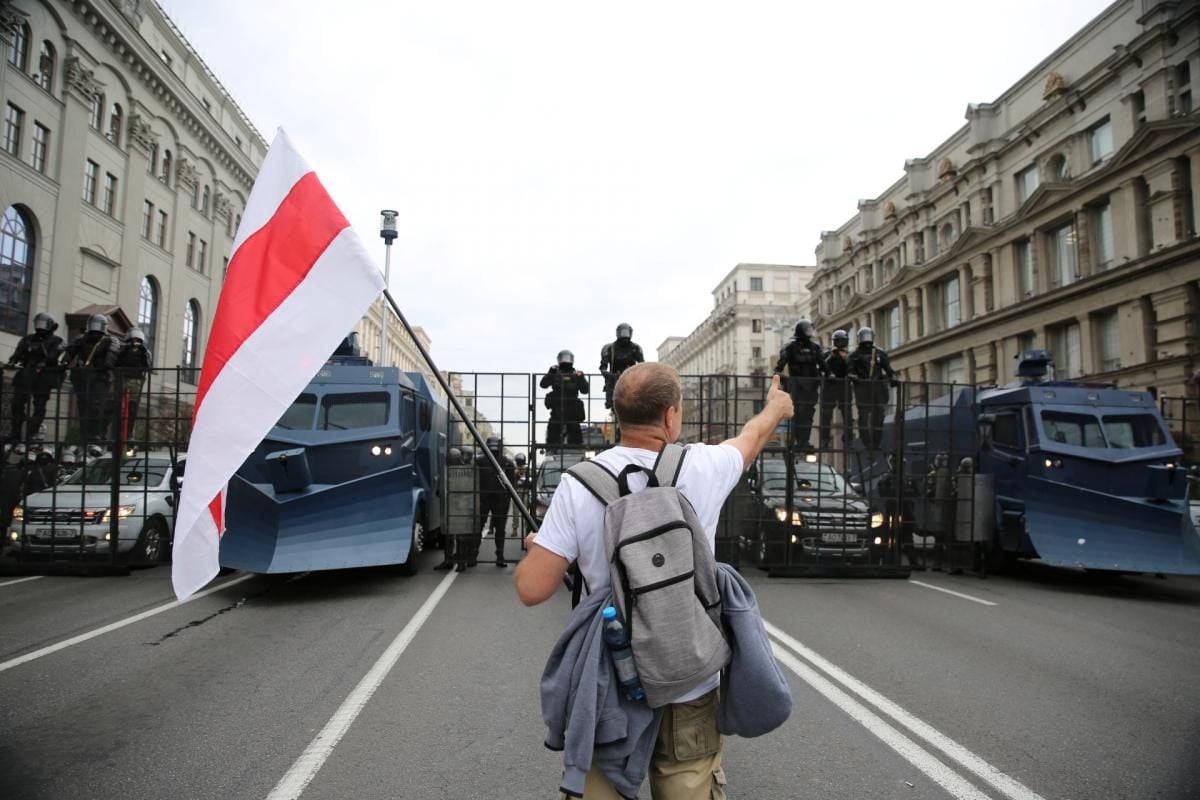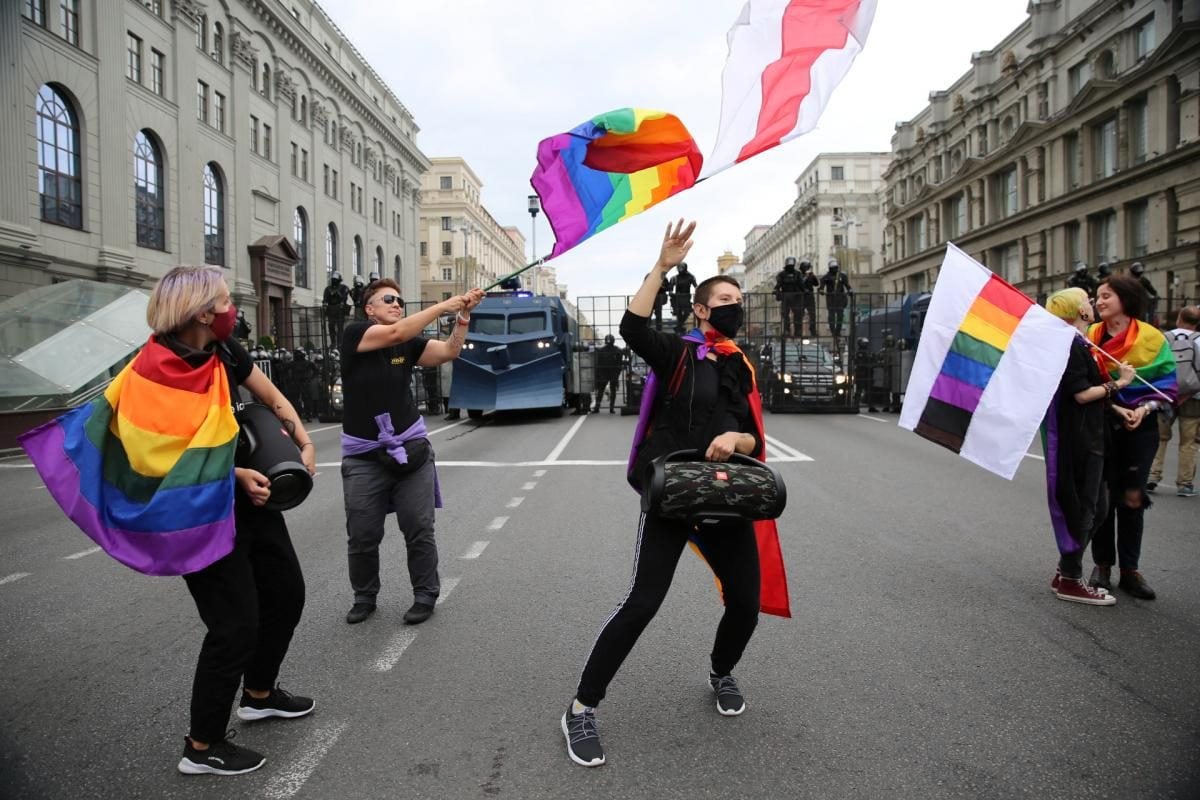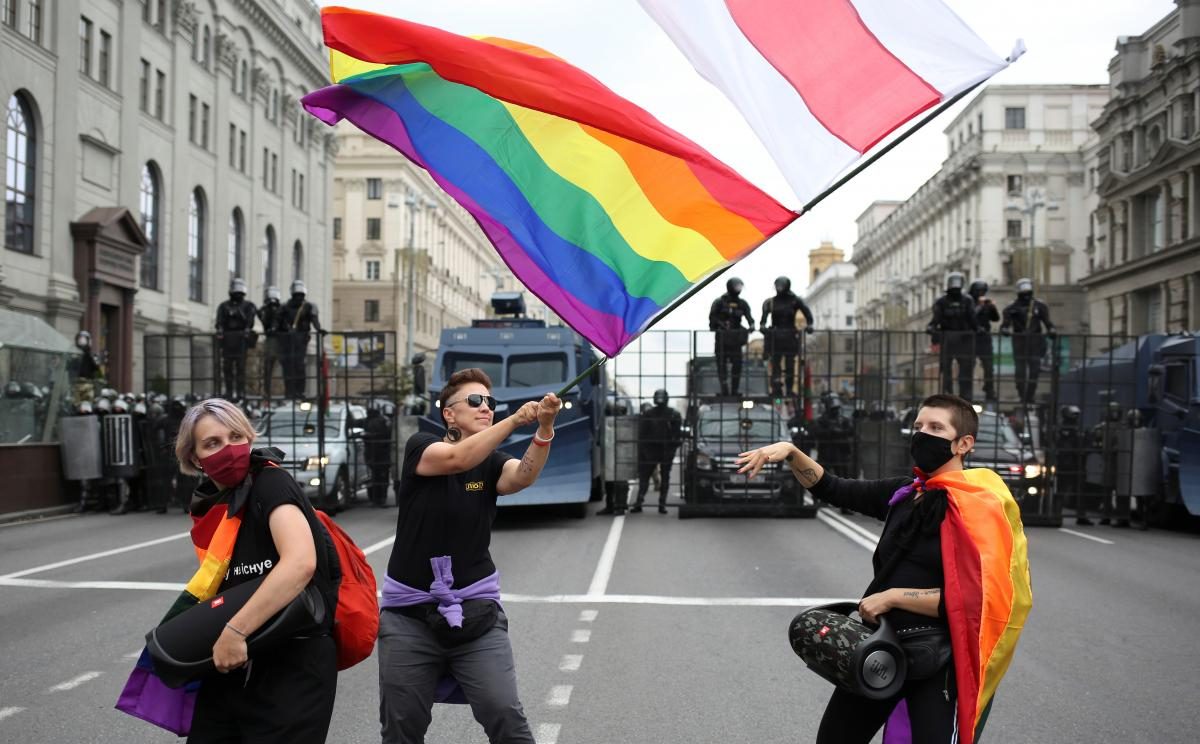On Sunday, September 6, the March of Unity is being held in the cities of Belarus, the fourth to date, where activists demand a fair presidential election and contest what they believe was a rigged vote count on August 9 that secured a landslide win for incumbent president Alexander Lukashenko.
According to the Baza Telegram channel, thousands took to the streets in Minsk. According to various sources, a total of nearly 100,000 protesters are taking part in today's rally.
"The authorities blocked all approaches to the center," the report says.

As of 20:15, the human rights center Viasna reported that in the capital alone, 158 detainees had already been confirmed.
Among them are Olga Pavlova, a member of the Coordination Council, Irina Sukhiy, head of the Ecodom company, and Artem Sizintsov, a journalist with Radio Ratsya.
Read alsoEU not to impose sanctions on Lukashenko – mediaEyewitnesses in Brest, Baranovichi, Vitebsk, and Grodno report "brutal" detentions.
According to the Telegram channel of Radio Liberty's Belarusian Service, several people were detained on Partizansky Avenue in Minsk.
"Several hundred people walked along Partizansky Avenue. In the area of the motorcycle factory, they were stopped by uniformed security carrying riot shields ... At about 14:00, security officers pushed them out onto Chabataru Street. Some were surrendered, while the rest were seen fleeing through backyards. After that, the arrests began," the report says.
Prior to that, Radio Liberty's Belarusian office reported that military hardware was being pulled toward Minsk center while the security forces have cordoned off Oktyabrskaya Square and Independence Square, and the Minsk – Hero City stele was fenced with barbed wire.
The Ministry of Internal Affairs of Belarus announced they would shut down Minsk avenues during the march. Protesters had been warned about measures to prevent "illegal actions."
"The police are on high alert. The number of police and military has been increased for the safety of citizens. Also, special equipment of the police and internal troops was involved. In the daytime, the city's avenues will be closed," the ministry said.
It is reported that police officers will take "all necessary measures to stop the rallies and prevent violations of public order."
In the afternoon, law enforcers, as well as plain-clothed men armed with bats slammed down on protesters in various parts of Minsk, hunting down activists, beating, and detaining them.
"On Pobediteley Avenue, unidentified masked persons armed with bats rushed at the people and started beating them. Including those who fell to the ground. The designated police officers did nothing," Radio Liberty's Belarusian service reports. "About 15 unidentified persons wearing caps and balaklavas, wielding truncheons, broke into the O'Petit cafe at the very beginning of Pobediteley Avenue. Demonstrators were hiding there. Unidentified persons smashed glass doors with truncheons and burst in. They dragged several people outside. None of the designated police officers did anything about it."
Belarus interior ministry's spokesperson said she had no information on who the masked men were, and that the police would look into the incident.
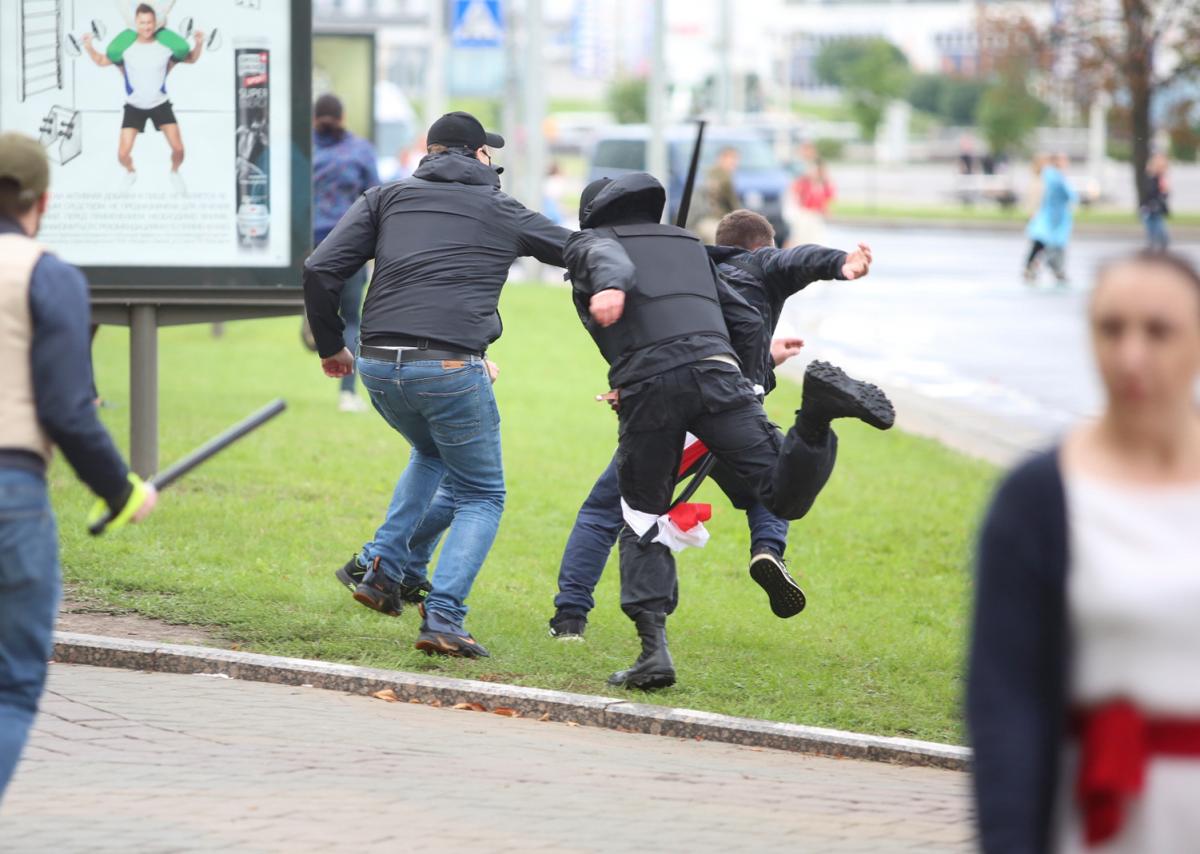
Belarus protests: background
- Belarus protests: background On August 9, presidential elections were held in Belarus. The country's Central Election Commission announced the final election results. In particular, 80.1% of voters supported incumbent President Alexander Lukashenko, 10.1% voted for Svetlana Tikhanovskaya, 1.67% for Anna Kanopatskaya, 1.2% for Andrey Dmitriev, and 1.14% for Sergei Cherechnya. Some 4.59% voted against all candidates.
- Thousands of residents of Belarus took to the streets to protest what they believe is a rigged vote count. Riot police violently cracked down on protesters.
- Belarus' Ministry of Internal Affairs said about 7,000 protesters had been detained in different cities since August 9. On the evening of August 13, the authorities started to release detainees.
- On August 14, the European Union announced it did not recognize the outcome of the presidential elections in Belarus and on August 19 leaders reportedly agreed on sanctions to be introduced over election rigging and violence against protesters.
- The first March of Freedom, the largest protest in the history of Belarus, took place on August 16 in Minsk. Hundreds of thousands of people joined in.
- On August 20, the Prosecutor General's Office opened a criminal probe into the attempt by the opposition to "seize power."
- Lukashenko has repeatedly claimed "foreign interference" in the election and the external efforts to foment protests. He spoke with Russian President Vladimir Putin who had promised him comprehensive assistance upon request.
- Belarusian Defense Minister Viktor Khrenin has warned of the possible use of army to disperse protesters rallying under the flags he claims were once used by Nazi troops.

